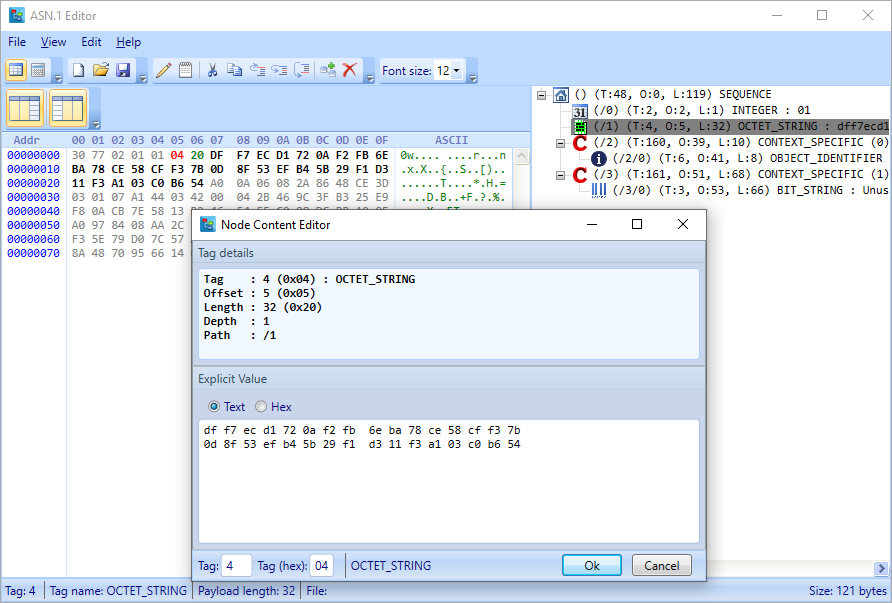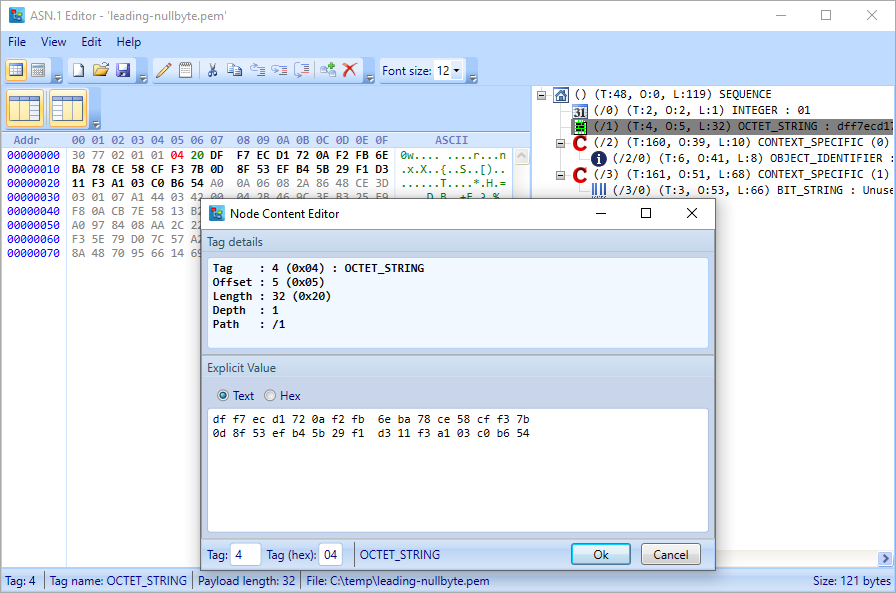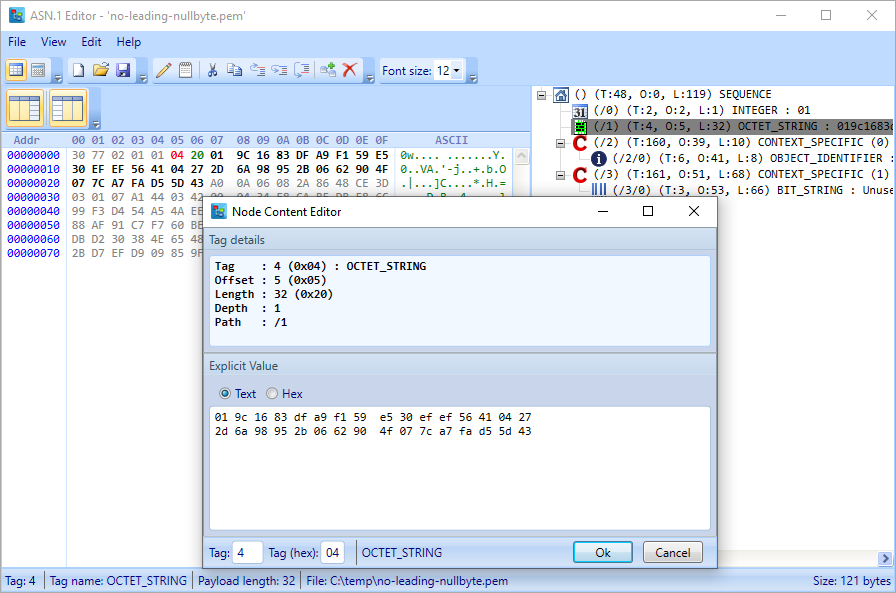#Sample key with leading nullbyte
Here's an example of a random key I generated:
Sample key with leading nullbyte
Here's an example of a random key I generated:
ec printout leading-nullbyte.pem
##ec printout leading-nullbyte.pem
ThisThis key is shown with the "00:" prefix for the private key.
asn1parse leading-nullbyte.pem
##asn1parse leading-nullbyte.pem
...however when actually looking inside the ASN1 encoding there is no 00: prefix. It just starts with df: right away. And also: length is given as 32 (l= 32). Not 33.
ASN.1 Editor "leading-nullbyte.pem": no 0x00
#Sample key WITHOUT leading nullbyte
Here's another random key I generated. It does NOT haveAs an afterthought: Here's also an actual hexdump of the DER contents. And again: no actual 0x00 prefix when usingin the openssl ec pretty printerfile.

Sample key WITHOUT leading nullbyte
Here's another random key I generated. It does NOT have the 0x00 prefix when using the openssl ec pretty printer.
##ec printout no-leading-nullbyte.pem
$ openssl ec -noout -text -in no-leading-nullbyte.pem
read EC key
Private-Key: (256 bit)
priv:
01:9c:16:83:df:a9:f1:59:e5:30:ef:ef:56:41:04:
27:2d:6a:98:95:2b:06:62:90:4f:07:7c:a7:fa:d5:
5d:43
pub:
04:34:f8:ca:bf:db:e8:6c:99:f3:d4:54:a5:4a:ee:
5c:34:fc:8f:c0:2b:dc:b0:c9:88:af:91:c7:f7:60:
be:99:97:55:b5:a9:c7:c2:54:e6:db:d2:30:38:4e:
65:48:4f:0a:33:2c:08:26:cf:29:2c:2b:d7:ef:d9:
09:85:9f:ee:a6
ASN1 OID: prime256v1
NIST CURVE: P-256
ec printout no-leading-nullbyte.pem
$ openssl ec -noout -text -in no-leading-nullbyte.pem
read EC key
Private-Key: (256 bit)
priv:
01:9c:16:83:df:a9:f1:59:e5:30:ef:ef:56:41:04:
27:2d:6a:98:95:2b:06:62:90:4f:07:7c:a7:fa:d5:
5d:43
pub:
04:34:f8:ca:bf:db:e8:6c:99:f3:d4:54:a5:4a:ee:
5c:34:fc:8f:c0:2b:dc:b0:c9:88:af:91:c7:f7:60:
be:99:97:55:b5:a9:c7:c2:54:e6:db:d2:30:38:4e:
65:48:4f:0a:33:2c:08:26:cf:29:2c:2b:d7:ef:d9:
09:85:9f:ee:a6
ASN1 OID: prime256v1
NIST CURVE: P-256
asn1parse no-leading-nullbyte.pem
#asn1parse no-leading-nullbyte.pem
HereHere again length is given as 32:
Extra: How do I know that the 0x00 is a sign byte?
#Extra: How do I know that the 0x00 is a sign byte?
... by experimentation:



